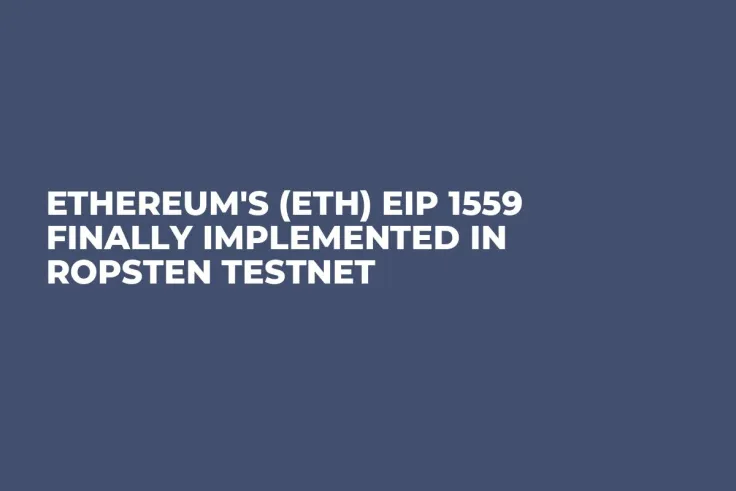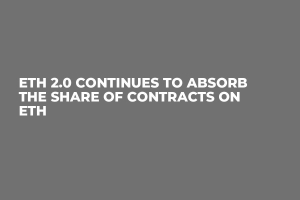Ethereum's London hardfork is one of the most anticipated updates for the entire blockchain scene in 2021. It includes the controversial Ethereum Improvement Proposal 1559.
Like clockwork: Ethereum's London hardfork is activated on Ropsten testnet
According to the Twitter post by Ethereum (ETH) core developer Tim Beiko, today, on June 24, 2021 at 02:23 UTC on block height 10499401, London hardfork was activated on the Ropsten test network.
We have a block! Took a bit longer than expected, but London is live on Ropsten ?https://t.co/wM2xepis0y?from=article-links
— Tim Beiko | timbeiko.eth ?? (@TimBeiko) June 24, 2021
Mr. Beiko admitted that activation took 'a bit longer' than it was previously expected. At the same time this update is the first-ever activation of London in Ethereum's (ETH) testnets.
On June 30, this crucial update will be implemented on the Goerli test network on Rinkeby and the activation is expected to come by July 7, 2021.
The developer added that Ropsten test network validates blocks with reduced speed due to lack of miners who upgrade their equipment in time as the mining in testnet is largely altruistic.
Why is EIP 1559 important?
London hardfork includes five Ethereum Improvement Proposals (EIPs) while EIP 1559 is the most crucial one. It introduces dynamic fees structure and implements periodical fee burnings.
Thus, with EIP 1559 activated, Ethereum (ETH) becomes a deflationary asset for the first time in its history. Some analysts treat this as a bullish catalyst for Ethereum (ETH) price.
However, as Ethereum (ETH) gas fees will be reduced for users, some Ethereum (ETH) miners have opposed this hardfork for years.
Ethereum's London is among the latest network-scale upgrades before the migration of Ethereum (ETH) towards ETH2 with its sharding and Proof-of-Stake (PoS) consensus.



 Dan Burgin
Dan Burgin Vladislav Sopov
Vladislav Sopov